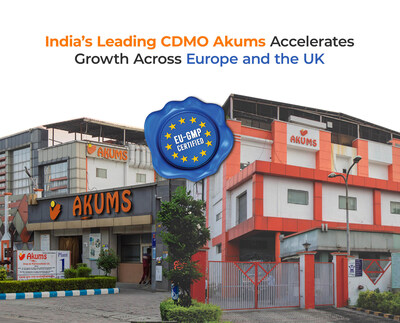PwC, the professional services firm, has reported revenue growth of 10 percent to £3,083 million for the year ended 30 June 2015, up from £2,814 million the previous year. Profits increased by 6 percent to £818 million as the firm continued to invest heavily in its people, training and skills, infrastructure and technology.
Ian Powell, chairman and senior partner of PwC UK, commented:
“The momentum in our business today is a reflection of our long-term investment strategy and the decisions we took during the downturn to ensure that we deliver responsible, profitable growth. Over the past seven years we have invested close to £1 billion in developing our people, technology, infrastructure and new services to meet the future needs of our business.
“Our core businesses – Assurance, Tax, Deals and Consulting – delivered strong growth and our newer businesses such as cyber security, data analytics, digital and technology consulting performed particularly well. Our investments, such as Strategy&, cloud-based accounting tools for SMEs, real-time assurance technology, Skyval pension analytics platform and global collaboration with Google, are all key to helping our clients compete more effectively in the future. These investments are also enabling us to contribute to the continued growth of professional services, one of the UK’s biggest sectors and exporters, and crucial to the knowledge economy.
“Creating jobs, developing skills, generating GDP and contributing in financial and non-financial ways to the communities in which we live and work is core to our business. We measure our broader impact to the economy, tax revenues, society and the environment, and estimate that we made an overall contribution to the UK of £4.22 billion this year, including £1,073 million in taxes paid to and collected on behalf of the UK Exchequer. We hired some 4,100 people, including more than 1,500 graduates and school leavers, and received over 100,000 job applications.
“This year we have chosen to produce a combined digital Annual Report and sustainability report, including video, infographics and animations, to make it easier to access and even more transparent. Evolving how we communicate with our people, clients, regulators and society is important to our future success as a professional services business in a digital age.”
Matt Hammond, regional chairman of PwC in the Midlands said:
“In the Midlands region, our growth has been amongst the strongest in the UK, with outstanding results achieved across all areas of the business. In the last 12 months, we have made a substantial investment in our people, with 20 partner and director promotions strengthening our senior team, and new experts in a number of areas enabling us to provide specialist services for our clients.
"We also continue to attract new talent, filling over 200 roles across our three offices in Birmingham, the East Midlands and Milton Keynes, including graduates, students on undergraduate work experience programmes and higher apprentices.
"Other highlights in the Midlands have included 25 M&A transactions over the last 12 months - worth over £3.3bn, a significant investment to develop a hub of industrial sector expertise in the Midlands, and increasing activity with clients in areas such as R&D and cyber security.
“With stronger economic growth, increased decentralisation and further confidence expected in the business community, we are committed to supporting our clients as they grow."
2015 financial highlights:
· Each of the firm’s four business divisions delivered good growth. Assurance grew by 9 percent to £1,121 million, Tax by 7 percent to £763 million, Deals by 8 percent to £628 million, and Consulting by 16 percent to £571 million.
· The average distributable profit per partner before tax was £740,000, up 2.5 percent from £722,000 in 2014.
· Regional revenues grew by 15 percent with growth in all UK regions.
· The firm's total tax contribution to the UK Exchequer, including the contribution of partners, was £1,073 million, up from £984 million last year. The effective tax rate for partners was 48 percent.
2015 non-financial highlights:
· PwC became the first major employer to drop UCAS points as a graduate recruitment criteria because we want to recruit as broad a range of talented students as possible.
· PwC was the first professional services firm and one of only a handful of businesses to publish its gender pay analysis, as part of the firm's commitment to diversity and equality.
· The firm has now taken on more than 300 Higher Apprentices in the past three years, and three direct entry school leavers to the firm became partners this year.
· Lord O'Donnell and Justin King CBE joined the Public Interest Body as independent non-executives further enhancing the firm's governance arrangements.
· The firm increased overall partner numbers to 885 during the year, an increase of 4%, a key part of the ongoing investment strategy.
· Following the launch of successful alliances with PwC member firms in the Middle East, Central and Eastern Europe and Africa, the firm is continuing its strategy of investing in high potential markets, bringing benefits for our clients and the UK economy, and opportunities for our people.
Ian Powell underlined the firm's ongoing commitment to building trust and being a progressive employer, saying:
“We've made good progress on social mobility and diversity, but we're still not bringing enough people from diverse backgrounds through into leadership positions. If PwC is to stay relevant in the next 10-15 years we need to continue to reflect society. We've made great strides over the past 12 months to improve social mobility in terms of the people that get access to the firm, but we want to become even more diverse and inclusive. Continuing to attract the best people and be a great place to work is a key priority.”
Commenting on the business and economic outlook, Ian Powell added:
“Business confidence has been improving and, while uncertainties remain, the UK economy is performing well. Britain is one of the fastest growing major western economies and is well-placed to achieve a number of years of respectable growth. British business is innovative and dynamic, and I am optimistic that the UK will continue to be very attractive for inward investment and job creation.”
 The Phoenix Newspaper UK | Latest news in UK | Positive news | Inspiring The Next Generation
Inspiring The Next Generation
The Phoenix Newspaper UK | Latest news in UK | Positive news | Inspiring The Next Generation
Inspiring The Next Generation Related Items
Latest News
- Africa’s $29.5T mineral wealth poised to boost mining sector...
- Birmingham medtech company Eyoto breaks new ground across th...
- Grey expands global business banking with new USD-based paym...
- Ship & Shore Environmental, Inc. launches advanced dust coll...
- SICPA secures major European award for United Kingdom (UK) V...
- Council invests additional £250,000 to help fight fly tippin...
- St. Eustatius launches global tourism campaign with Caribbea...
- New Rolls-Royce extension building reaches landmark moment...
- 16-yr-old Nigerian, Jared Ejiasian, breaks 60m hurdles world...
- Akums strengthens European and UK presence — India's largest...
- Bereaved man back in the swim of thing through regular exerc...
- Mt Mulligan Lodge unveils new spa and wellness experience...
- Shaping a Human-Centric Future for AI – AI Impact Summit 202...
- Tourism & Takeoffs: Caribbean leaders head to Bermuda for hi...
- U.S. Supreme Court strikes down global tariffs in win for to...















